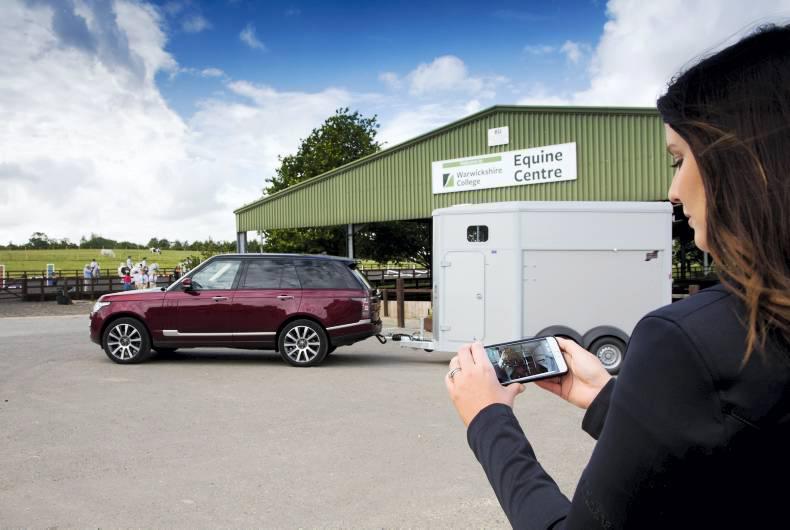Land Rover has broadened the appeal of the Discovery with the launch of two new special editions, the Landmark and the Graphite.
The Discovery Landmark builds on the specification of the HSE derivative with new interior and exterior features to give customers a more premium and unique look and feel to their Discovery.
The exterior upgrade sees the addition of full-length roof rails in a bright finish that highlight the familiar stepped roof design of the Discovery. Distinctive black fender vents, grille and mirror caps complement silver bonnet and tailgate badges, alongside Landmark badging to the side and rear to further distinguish this model. Twenty-inch five-split spoke alloy wheels complete the design.
The Discovery Graphite comes with a grey graphite finish to the fender vents and grille, a gloss black and lighter grey frame that blends with existing grey door handles and the Discovery badging to the bonnet and tailgate. The Graphite models come with 19-inch seven-split spoke alloy wheels in a high gloss dark grey as standard. There are nine body colours and three interior colour options.
Sport gets Ingenium engine
Land Rover is now offering the new Ingenium diesel engine range in the Discovery Sport models. This EU6 compliant engine is available in two power options, 150bhp or 180bhp, with claims of improved fuel economy and lower CO2 levels to give lower ownership costs.
The Discovery Sport’s EU6-compliant Ingenium engine range will be available with two power outputs, 150PS and 180PS. Land Rover claims that the new 150bhp derivative in its five seat set-up provides fuel economy of up to 20.4km/litre (57.7mpg) and CO2 emissions from 134g/km, while the TD4 180bhp version in its standard 5+2 configuration delivers 139g/km and 18.9km/litre (53.3mpg) on the combined cycle.
These new engines use an aluminium cylinder block which has low levels of vibration and engine noise. These engines will replace the current 2.2 litre diesel engine in EU6 markets, and Land Rover claims that it makes the Discovery Sport one of the most efficient premium compact SUVs on the market.
There is a new eD4 version of the Ingenium-powered Discovery Sport TD4 150PS with a blue Sport badge highlighting the most efficient variant. These vehicles will also feature 18-inch wheels with low rolling resistance tyres. The final drive gearing and engine calibrations have been optimised to provide the lowest possible CO2 for the vehicle.
The eD4 versions have a lower 119g/km CO2 emission level and are rated at 22.2km/litre (62.7mpg) in fuel economy terms. E-Capability introduces a five-seat option for the first time, with all TD4 180PS variants remaining with 5+2 seating as standard.
New trailer technology
Land Rover’s researchers are developing what they call transparent trailer technology. This is designed to eliminate the blind spot when towing a large item like a horse box or trailer. It claims to allow the driver to clearly see vehicles coming up behind them, make manoeuvrability easier and improve safety when overtaking.
This prototype technology combines video feeds from the existing reversing camera on the vehicle and the cameras on the wing mirrors with an additional wireless digital camera on the rear of the trailer. This combined video feed is then automatically sent to the rear view mirror in the vehicle, making the trailer appear see-through.
Land Rover has also developed what it calls a Cargo Sense system, which alerts the driver, either while on the move or remotely through a bespoke phone app, on the status of the cargo in their trailer. This novel trailer monitoring system combines an in-trailer video feed and pressure sensors on the floor to produce alerts if the cargo becomes unstable or the trailer is tampered with.
While on the move, the system will send a warning to the dashboard to alert the driver of any potential problems with the cargo, or horse, before they become serious.
When away from their vehicle, users can also check the status of the trailer remotely via the Cargo Sense app. Features include alerts if a horse becomes distressed, if there are any noticeable temperature changes or if the trailer is tampered with.






 This is a subscriber-only article
This is a subscriber-only article















SHARING OPTIONS: